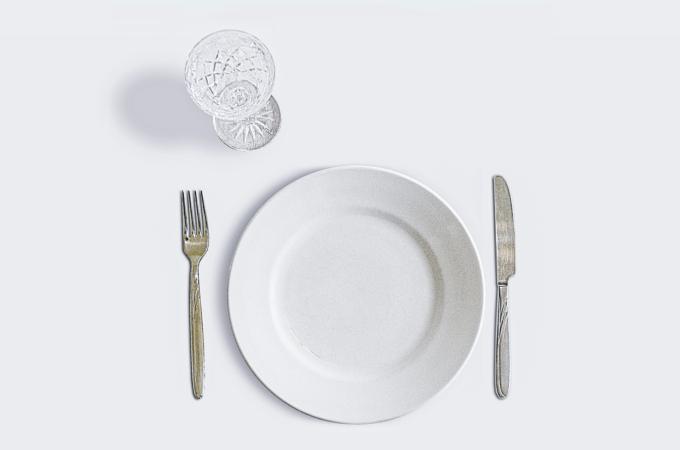Giving up in Lent
During Lent, we devote ourselves more intently to prayer, mortification, and almsgiving. Here are some ideas for Lenten discipline, which holy persons have recommended to me.
1. Give up something you eat or drink daily and that seems necessary to you, for example, coffee, wine, or beer.
We are told "it's not a matter of giving something up" in Lent but of finding ways to give more, in sorrow for sins. And yet often our receptivity to the Spirit, and our capacity to give, is limited by attachment to false needs. So, ask for detachment from all false needs, by the struggle to detach yourself from one that is especially salient. And, specifically, give away to charity what you would have spent on this false need: for example, each day, give away the five dollars you would have spent on coffee. When you find yourself craving for that missed coffee or drink, as you will, ask yourself: Do I crave for God similarly? Then, weep for your weakness, and mine.
2. Withdraw from electronic media, to practice silence and the presence of God.
The radio in the car, the TV in the background, music while working, music while exercising, checking one's phone during down times: we turn increasingly to electronic media, and soon we are going to excess. We do this, in part, as a diversion from important things, in part, for solace (think how comforting a glowing screen is, no matter what is showing on it), and, in part, because we are bored. Clear out all of this noise, this "buying and selling," the way the Lord cleared out the temple, because your body, too, as a temple of God, is meant to be a house of prayer. Keep the radio off in the car. Leave the earbuds behind. Use your phone only for necessary business. Then, fill the silence with prayer. Begin with simple vocal prayers (the Memorare, the Hail Mary, the Angel of God), because they are easy -- but then move to genuine conversation with God.
3. Count calories
Even the more fit among us carry around more fat than doctors recommend -- that 10, 20, or 30 pound animal around one's belly. This is wrong. Worse than that, most of us are actually obese. A main reason is that we are a wealthy nation, and many of us each day eat rich foods of the sort that have traditionally been consumed only on Sundays and feast days, in poorer cultures. Of course to diet is not to fast, because the intention of dieting falls short of the intention of pleasing God. And yet, a diet, or rather a technique used when someone is dieting, or in training, can be useful for imposing on oneself a fast-like discipline. Therefore, set a target (say, 500 calories a day less than you need to keep your present weight); count your calories carefully (there are many apps and websites that can assist you); and strictly do not consume more than you have budgeted. You will find this tremendously difficult. Spiritualize the practice by offering up the discomfort you feel, or the particular acts of self-denial you must make, for definite prayer intentions (compile a list for this purpose, and have it handy). You will be astounded how little you must eat to keep yourself alive: itself a humbling realization. Over time, you will naturally find yourself eating in ways similar to your poorer brothers and sisters around the world. Thus, you can use Lent to grow in solidarity with them.
4. Say the rosary each day
It's a practice Mary asks for, every time she appears, at Lourdes, Fatima, and elsewhere. It must mean a lot to her. Have you incorporated a daily rosary into your life? If not, let this Lent be the start. But, why the rosary? It is the perfect exercise of prayer. It places you in sympathy with contemplative monks and nuns around the world (that is how it arose in the first place, a bead for each of the psalms that these religious recite). It leads you to contemplate lovingly the life of Christ. It places you under the gentle mantle of the love of his mother. For guidance, read the great Apostolic Letter on the rosary by St. John Paul II, "Rosarium Virginis Mariae" (2002). Then, just do it. Keep score of how many days you succeed.
5. Make peace with someone
Blessed are the peacemakers. To forgive injuries, and to bear wrongs patiently, are among the Spiritual Works of Mercy. Must we carry that grudge one more year? How can we ask God to forgive us our trespasses, if we have not forgiven our brother who has trespassed against us? Who is the most difficult person you know? Who ticks you off the most? Who has injured you, perhaps seriously? Take steps to become reconciled. Begin by practicing control of the tongue and cheerfulness in that person's presence. Ask God for his grace -- you will need it, and it is good to be clear that we are relying on God. Ask the help of your guardian angel -- and his. Make reconciliation a constant prayer intention. Then, take small steps at first, and remain confident of God's grace.
Think of how blessed you will be to arrive at Easter, having followed Christ during the 40 days of Lent in these or other ways.
- Michael Pakaluk is Professor of Ethics and Social Philosophy in the Busch School of Business at The Catholic University of America. His book on the gospel of Mark, ‘‘The Memoirs of St. Peter,’’ is available from Regnery Gateway.



















